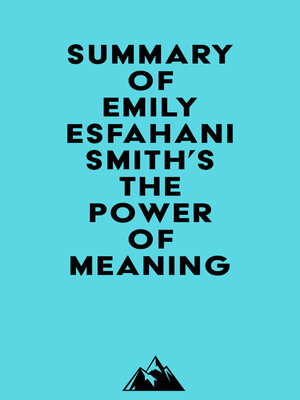
Sign up to save your library
With an OverDrive account, you can save your favorite libraries for at-a-glance information about availability. Find out more about OverDrive accounts.
Find this title in Libby, the library reading app by OverDrive.



Search for a digital library with this title
Title found at these libraries:
| Loading... |
Please note: This is a companion version & not the original book. Sample Book Insights: #1 The author, philosopher, and historian Will Durant wrote a letter to various literary, philosophical, and scientific luminaries asking them how they found meaning in their lives. Many people of his time felt like they were living in an existential vacuum, because modern philosophy and science had shown that the belief in a transcendent and supernatural realm is naïve at best and superstitious at worst. #2 The loss of traditional sources of meaning is tragic, and has become epidemic in our time. In his book, Durant asks great minds what makes life worth living, and they respond that life has become a fitful pullulation of human insects on the earth, a planetary eczema that may soon be cured. #3 The researchers found that people in wealthier regions, like Scandinavia, were happier than those in poorer ones, but they were also less likely to find life meaningful. The countries with the lowest levels of meaning, like Japan, also had the highest suicide rates. #4 Leo Tolstoy, a Russian novelist, was deeply troubled by the meaning of his life. In 1879, he wrote A Confession, an autobiographical account of his spiritual crisis. He began writing War and Peace in 1862, and family life distracted him from his doubts.






